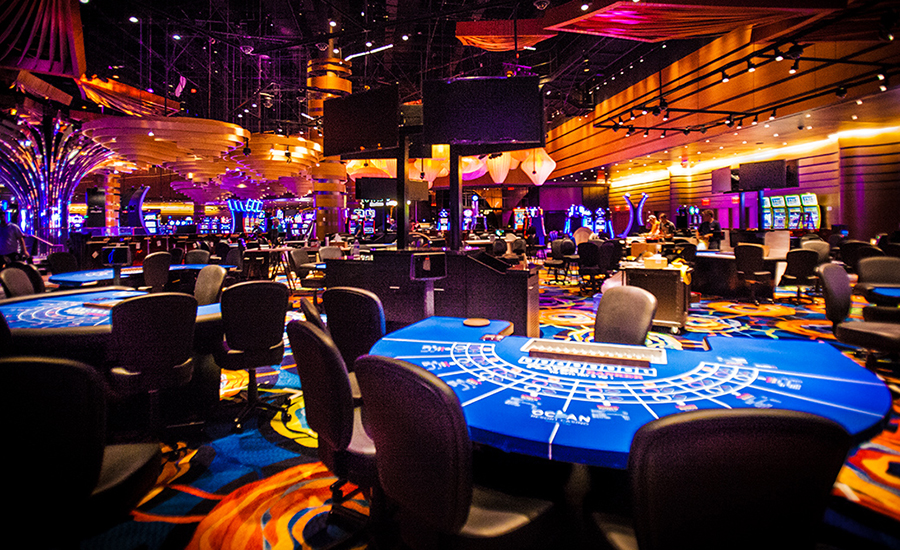
In the vibrant world of gaming, gaming activities have long enthralled the attention of players around the planet. These games, including classic table options like poker to the rotating reels of slots, offer an fascinating combination of chance and strategy. While fortune undeniably plays a important role in influencing outcomes, the significance of expertise in many casino activities cannot be ignored. Grasping how expertise shapes gameplay can enhance not only a gambler’s engagement but also their odds of success.
As we delve deeper the mechanics of casino activities, it becomes apparent that some need a solid base of wisdom and strategy. Games like blackjack call for more than mere luck; they require strategic thinking, psychological insight, and strategic decision-making. In comparison, other games, such as roulette and slot machines, are primarily driven by luck, allowing players to rely exclusively on random chance. This difference raises thought-provoking questions about what really drives achievement in the realm of casinos and how a player’s skill set can tilt the balance in their advantage.
Understanding Skill vs. Chance within Gambling Games
In the sphere of casino games, the debate between skill and luck is a enduring one. Many games are frequently divided into two groups: those that depend predominantly on chance, such as slots and the wheel, and those where skill plays a major role, like the game of poker and 21. The distinction is important because it affects not only gameplay strategies but also the approach players adopt when participating with these games. While luck can play a critical role in the short term, skilled players can increase their odds of winning over the long run in skill-based games.
Skill-based games, especially poker, require players to comprehend probability, psychology, and game theory. A seasoned poker player can read rivals, make calculated bets, and know when to fold, all of which can lead to greater favorable outcomes. On the other hand, in games that are purely based on chance, no amount of skill can alter the odds. This means that although a player may win big in one session, their victory may frequently be at the mercy to the whims of chance results rather than any tactical expertise.
Ultimately, both skill and luck coexist in the world of casino games, forming a dynamic environment for players. While games of chance can provide excitement and instant gratification, mastery and strategy in skill-based games offer a richer level of engagement for those willing to invest time in refining their craft. This interaction between skill and luck defines the experiences of players and influences their connection with the games they select to play.
The Impact of Expertise on Casino Results
In the field of casino games, skill plays a key role in determining the outcomes, especially in games where tactics and choices are paramount. For instance, in poker, players must examine opponents, calculate odds, and make calculated bets to maximize their chances of winning. Unlike activities that rely purely on chance, such as slot machines or the roulette wheel, poker demands an understanding of both the rules and the behavior of other participants, making skill a vital component of success.
Other skill-based games, like the game of blackjack, also highlight the importance of player skill. Knowledge of basic tactics, card counting, and when to hit or stand can dramatically influence the casino advantage. A skilled 21 player can reduce this edge and improve their chances of winning over time. This contrasts with activities that do not allow for such tactical play, demonstrating how the level of skill directly affects the possibility for favorable outcomes.
Additionally, even within games deemed primarily chance-driven, like the game of craps, the decisions made by players can impact their overall performance. Choosing the optimal bets, comprehending the likelihoods of different results, and controlling one’s funds are essential factors that can enhance a participant’s experience and results. Thus, while luck remains a factor in casino games, ability can significantly influence how efficiently players navigate these settings, leading to more positive results.
Strategies for Proficient Play in Casinos
To succeed in casino games, players must develop a robust grasp of the rules and probabilities involved in various games. This basic knowledge enables individuals to make educated choices, especially in skill-based games like Texas Hold’em and 21. Familiarizing oneself with game tactics, such as keeping track of cards in 21 or identifying wagering trends in Texas Hold’em, can significantly enhance a player’s odds of winning. Practicing these strategies through practice games or low-risk games allows players to refine their skills without putting substantial amounts of cash at risk.
Another key approach is bankroll management. https://789winbetting.biz/ Players should set a budget before going into the gaming establishment and adhere to it strictly. This involves deciding how much they are prepared to lose and setting limits on how much they will wager in each session. By keeping a disciplined approach to gambling, players can prolong their play and reduce the chance of significant losses. Additionally, pausing can help maintain a clear mind and prevent rash decisions that often lead to unfavorable outcomes.
In conclusion, managing emotions is vital in the intense environment of a casino. Players must learn to manage their emotions, particularly during times of winning or losing runs. Staying focused and not letting emotions dictate gameplay can lead to more rational decisions. Techniques such as taking deep breaths or stepping away from the table during heated moments can help keep calmness. By cultivating a steady state of mind, players can approach gambling games with assurance and skill, ultimately improving their overall gaming experience and results.

